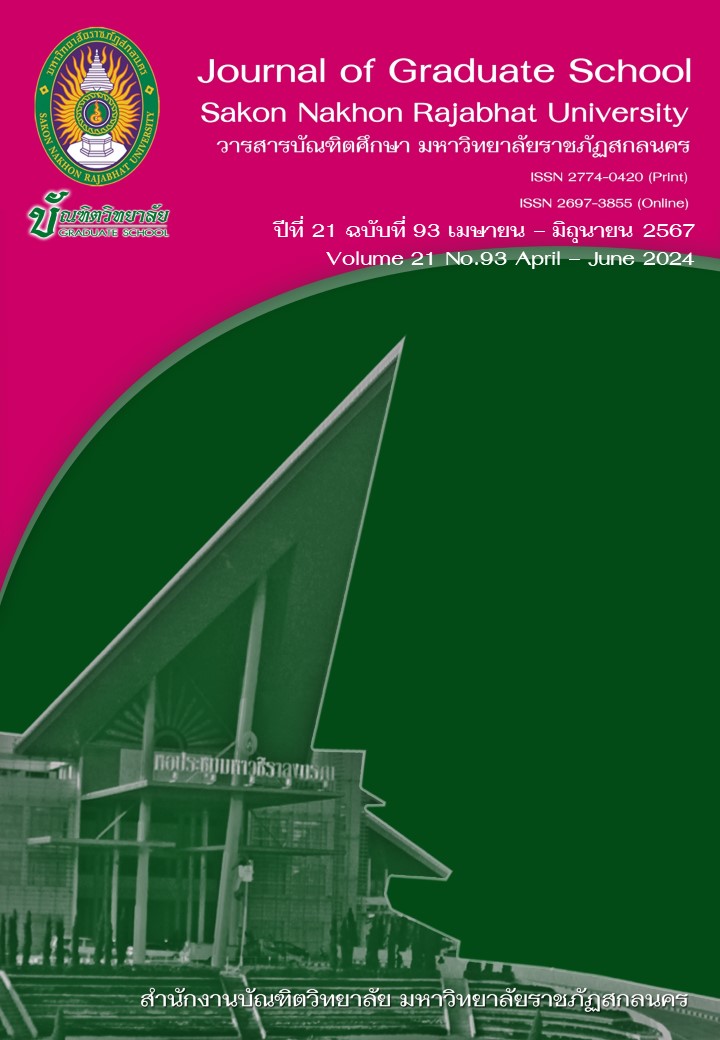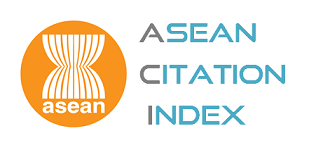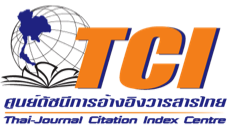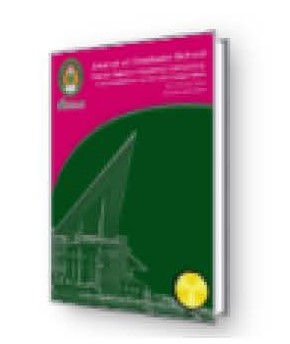THE RELATIONSHIP BETWEEN THE INTENTION TO USE THE SYSTEM AND THE LEARNING OUTCOMES OF THE COS2101 PROCEDURAL PROGRAMMING OF RAMKHAMHAENG UNIVERSITY STUDENTS
Keywords:
Intention to Use the System, Thai language Subject Learning Outcomes, Online System, Procedural ProgrammingAbstract
The purposes of this research were to 1) investigate the relationship between the intention to use the system and the learning outcomes of the COS2101 Procedural Programming course of students at Ramkhamhaeng University, and 2) examine the factors contributing to the variations in the intention to use the system among students who met the learning achievement criteria and those who did not. The sample comprised 64 students enrolled in the COS2101 Procedural Programming course within the Computer Science Department during the second and summer semesters of the 2020 academic year. The research tool was a set of questionnaires. The data was analyzed and presented by descriptive and inferential statistics: frequency, percentages, and a chi-square test for independence.
The research results revealed that:
1. Reviewing the content before class, consistent class attendance, regular completion of exercises, and submission of homework demonstrated a statistically significant relationship with the learning outcomes of students enrolled in the COS2101 Procedural Programming course at Ramkhamhaeng University, determined at the .01 level of significance.
2. Factors affecting the intention of students to use the system were determined based on their learning outcomes. For students who met the criteria, these factors included consistently reviewing the content before class, a high level of commitment and engagement in studying, consistent class attendance, diligent studying, regular completion of all exercises, high engagement with assigned videos, and consistent assignment submission. For students who did not meet the criteria, the factors affecting the system use included occasional content review before class, a high level of commitment and engagement in studying but with a focus limited to specific interests, a moderate engagement with assigned videos, inconsistent completion of exercises, and mostly incomplete homework assignments.
References
ขวัญเรือน ก๋าวิตู และคณะ. (2564). ความสัมพันธ์ระหว่างปัจจัยและพฤติกรรมการปรับตัวในการเรียนออนไลน์กับผลสัมฤทธิ์ทางการเรียนของนักศึกษาพยาบาล ในมหาวิทยาลัยเอกชนแห่งหนึ่ง. วารสารสุขภาพกับการจัดการสุขภาพ, 7(2), 196–211.
จอมพล เล้ารุ่งเรือง. (2561). พฤติกรรมการใช้อินเทอร์เน็ต และผลสัมฤทธิ์ทางการเรียน กรณีศึกษา: นักศึกษามหาวิทยาลัยเทคโนโลยีราชมงคลพระนคร. วิทยานิพนธ์ วท.ม. กรุงเทพฯ: มหาวิทยาลัยธรรมศาสตร์.
แนวหน้า. (2563). วิจัยพฤติกรรมนักเรียนศึกษาผ่านออนไลน์ ยอดดาวน์โหลดทะลุแสนแต่ไร้สมาธิ. เข้าถึงได้จาก https://www.naewna.com/relation/502760. 1 กรกฎาคม 2563.
มหาวิทยาลัยรามคำแหง. (2560). หลักสูตรวิทยาศาสตรบัณฑิต สาขาวิชาเทคโนโลยีสารสนเทศ (หลักสูตรปรับปรุง พุทธศักราช 2560). กรุงเทพฯ: ภาควิชาวิทยาการคอมพิวเตอร์ มหาวิทยาลัยรามคำแหง.
มหาวิทยาลัยรามคำแหง. (2562). วิสัยทัศน์และพันธกิจ. เข้าถึงได้จาก http://www.ru.ac.th. 6 มกราคม 2565.
วรากรณ์ สามโกเศศ. (2563). 6 ปัจจัย เรียนออนไลน์ให้ได้ผลในมุมมองของ ดร.วรากรณ์ สามโกเศศ. เข้าถึงได้จาก https://www.bangkokbiznews.com/lifestyle/881331. 20 พฤษภาคม 2563.
สำนักงานคณะกรรมการศึกษาแห่งชาติ. (2545). พระราชบัญญัติการศึกษาแห่งชาติ พ.ศ. 2542 และที่แก้ไขเพิ่มเติม (ฉบับที่ 2) พ.ศ. 2545. กรุงเทพฯ: พริกหวานกราฟฟิค.
สุนทรี รินทร์คำ และศรัญญา พรหมโคตร. (2558). ปัจจัยที่ส่งผลต่อการสอบตกรายวิชาเคมีสำหรับวิศวกรของนักศึกษาคณะวิศวกรรมศาสตร์ มหาวิทยาลัยเทคโนโลยีราชมงคลล้านนา ภาคพายัพ จังหวัดเชียงใหม่. วารสารศึกษาศาสตร์ มหาวิทยาลัยทักษิณ, 15(2), 75–87.
สุรชาติ พุทธิมา และชโรชีนีย์ ชัยมินทร์. (2563). พฤติกรรมการเรียนแบบออนไลน์และความคิดเห็นที่มีต่อการเรียนการสอนแบบออนไลน์ของนักศึกษาหลักสูตรศิลปศาสตร์บัณฑิต สาขาวิชาสารสนเทศศาสตร์ มหาวิทยาลัยเชียงใหม่ ภายใต้สถานการณ์การระบาดของโรค COVID–19. เชียงใหม่: คณะมนุษยศาสตร์และสังคมศาสตร์ มหาวิทยาลัยราชภัฎเชียงใหม่.
อุไร ทองหัวไผ่. (2563). ประสบการณ์วิชาชีพวิทยาการคอมพิวเตอร์ หน่วยที่ 6. นนทบุรี: สำนักพิมพ์มหาวิทยาลัยสุโขทัยธรรมาธิราช.
Delone, W. H., & Mclean, E. R. (2003). The DeLone and McLean model of information system success: a ten–year update. Journal of management information system, 19(4), 9–30.
Holsapple, C. W., & Lee–Post, A. (2006). Defining, assessing, and promoting e–learning success: An information systems perspective. Decision sciences journal of innovative education, 4(1), 67–85.
Downloads
Published
How to Cite
Issue
Section
License
Copyright (c) 2024 Journal of Graduate School Sakon Nakhon Rajabhat University

This work is licensed under a Creative Commons Attribution-NonCommercial-NoDerivatives 4.0 International License.
บทความทุกบทความที่ตีพิมพ์ในวารสารบัณฑิตศึกษา มหาวิทยาลัยราชภัฏสกลนคร ถือว่าเป็นลิขสิทธิ์ของบัณฑิตวิทยาลัย มหาวิทยาลัยราชภัฏสกลนคร










